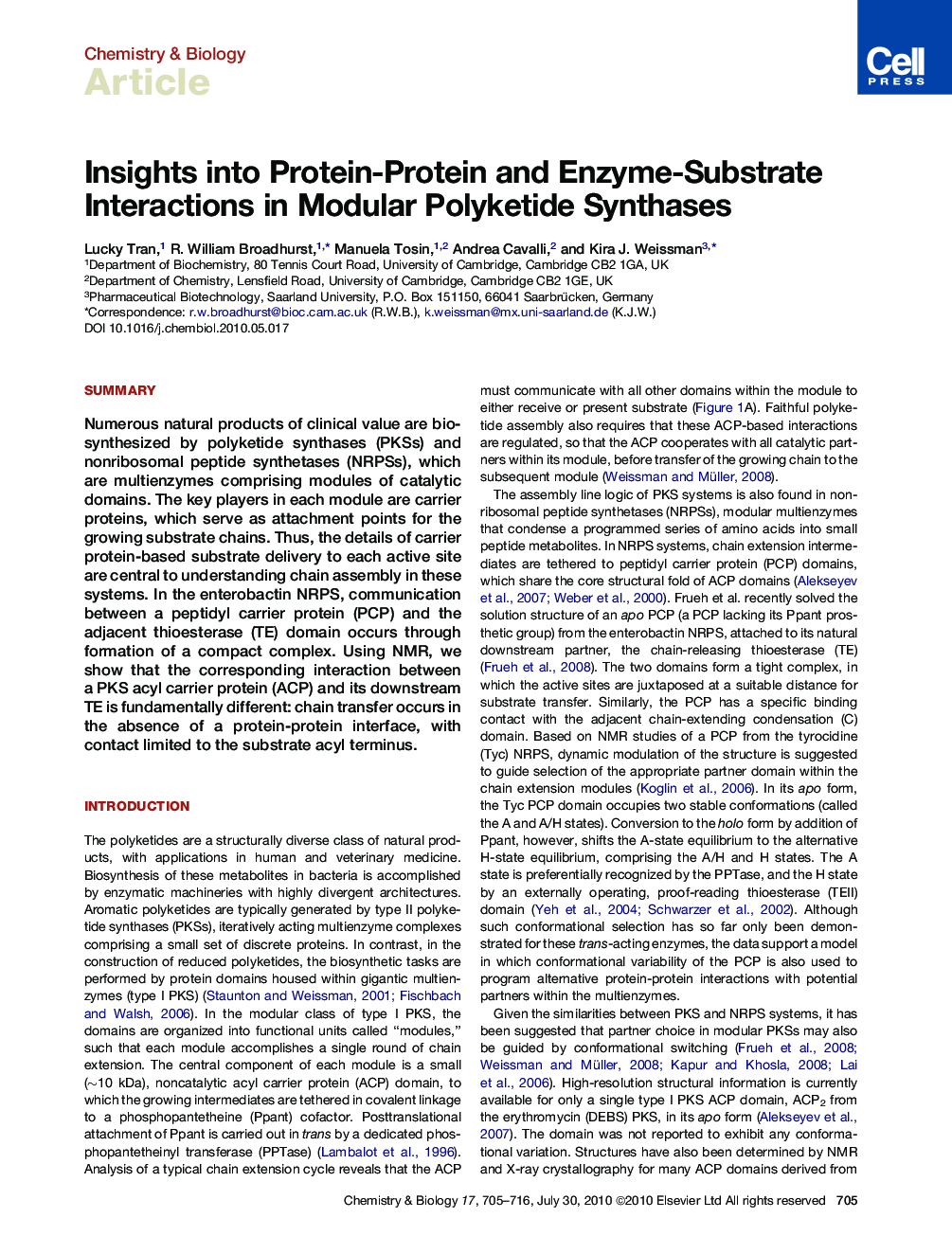| Article ID | Journal | Published Year | Pages | File Type |
|---|---|---|---|---|
| 1392499 | Chemistry & Biology | 2010 | 12 Pages |
SummaryNumerous natural products of clinical value are biosynthesized by polyketide synthases (PKSs) and nonribosomal peptide synthetases (NRPSs), which are multienzymes comprising modules of catalytic domains. The key players in each module are carrier proteins, which serve as attachment points for the growing substrate chains. Thus, the details of carrier protein-based substrate delivery to each active site are central to understanding chain assembly in these systems. In the enterobactin NRPS, communication between a peptidyl carrier protein (PCP) and the adjacent thioesterase (TE) domain occurs through formation of a compact complex. Using NMR, we show that the corresponding interaction between a PKS acyl carrier protein (ACP) and its downstream TE is fundamentally different: chain transfer occurs in the absence of a protein-protein interface, with contact limited to the substrate acyl terminus.
Graphical AbstractFigure optionsDownload full-size imageDownload high-quality image (191 K)Download as PowerPoint slideHighlights► The apo and holo forms of a representative PKS ACP domain adopt a single conformation ► The ACP does not interact with covalently attached acyl groups ► ACP to TE chain transfer occurs in the absence of a protein-protein complex ► Recognition by the TE is likely limited to the substrate acyl terminus
